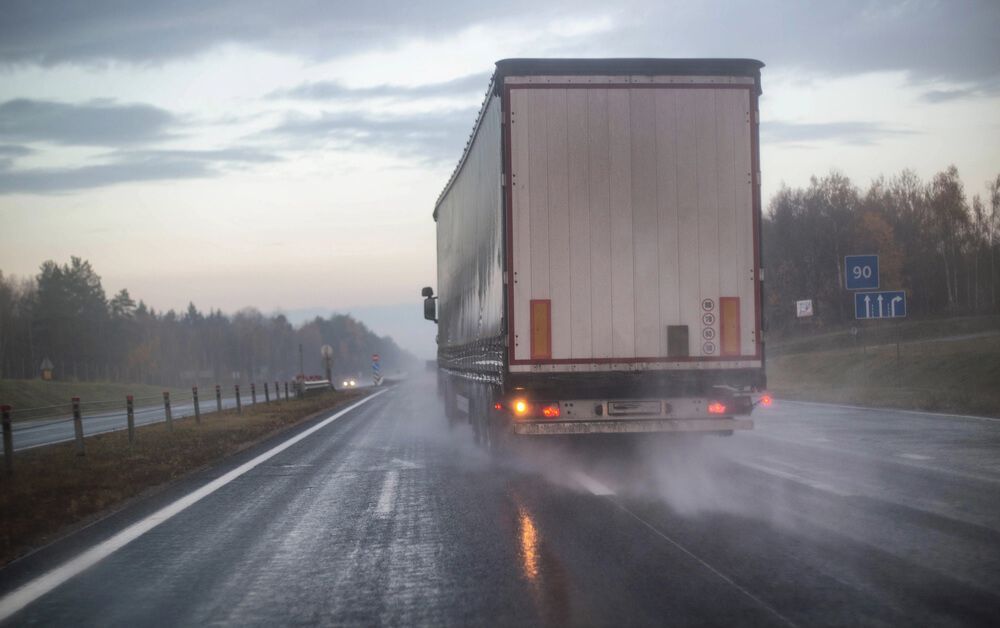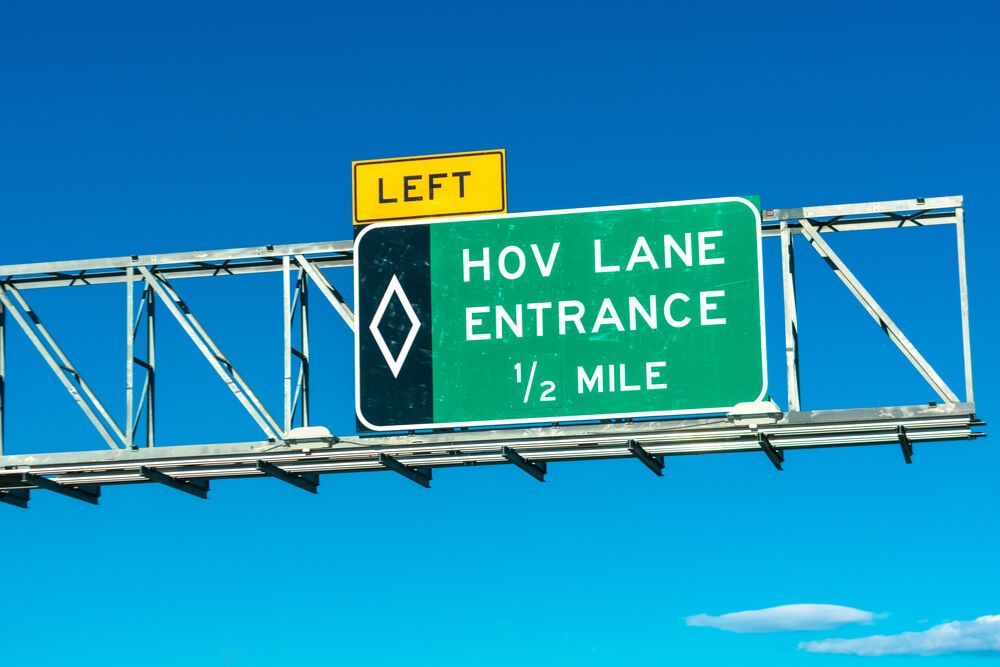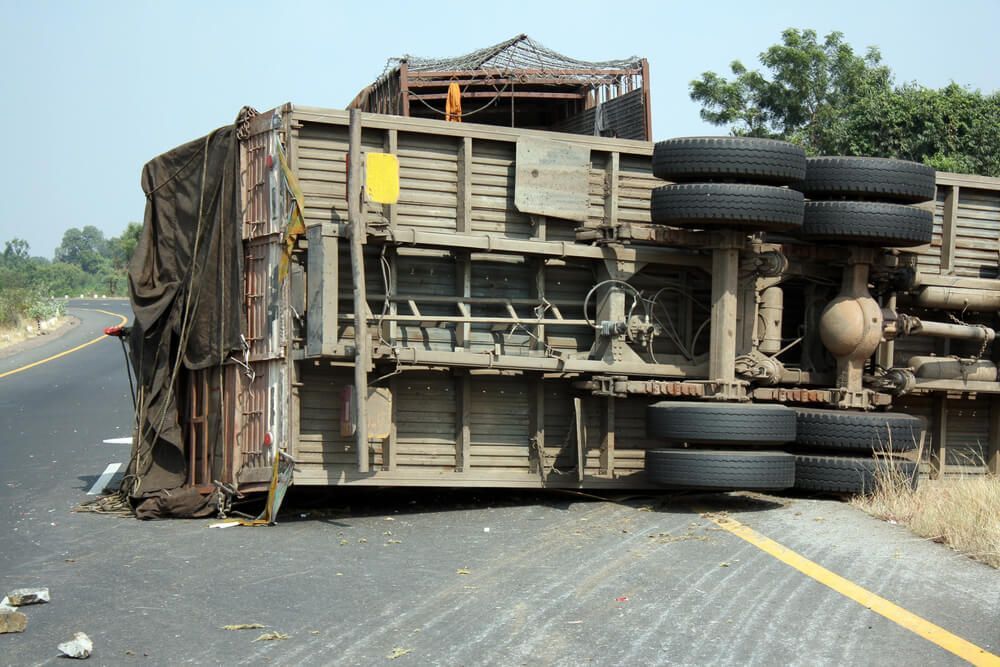Can You Sue a Trucking Company?
Recent Blog Posts
Can You Sue a Trucking Company?

Accidents involving commercial vehicles, especially trucks, can be especially devastating and terrifying. The sheer size and weight of these trucks can result in catastrophic injuries and extensive property damage. If you or a loved one has been involved in such an accident, you are likely dealing with physical, emotional and financial stress. After such an incident, one of the most important things to consider is how to pursue compensation for the damages caused by the crash.
Understanding when you have grounds to sue a trucking company is an important first step. Many factors come into play when determining if a lawsuit is appropriate, including the cause of the accident, the actions of the driver and the trucking company’s role. Here’s an overview of when you might sue a trucking company and the various aspects involved in the legal process.
When Can You Sue a Trucking Company?
The ability to sue a trucking company hinges on whether the company’s actions or negligence played a role in causing the accident. In general, negligence occurs when someone fails to act with the level of care that a reasonable person would under similar circumstances. For truck accidents, negligence can arise from several factors, ranging from driver error to inadequate maintenance of the vehicle by the trucking company.
What Are the Types of Negligence in Truck Accidents?
When it comes to truck accidents, negligence can take many forms, and understanding these different types can make all the difference in determining who’s at fault. Doing so can hold the responsible parties accountable to ensure safety and prevent future incidents.
Driver Fatigue
If the truck driver was operating the vehicle after exceeding legal driving hours or was impaired due to lack of sleep, their fatigue may have contributed to the crash. Trucking companies are required by law to adhere to hours of service regulations to ensure drivers take adequate rest. These regulations are in place to reduce the risk of accidents caused by tired drivers, and failing to abide by them can constitute negligence.
Vehicle Maintenance
Trucks require regular inspections, and any failure to maintain them could lead to issues with brakes, tires or the engine. Regular maintenance checks are vital to keeping the vehicle safe, and if a mechanical breakdown caused the accident, the trucking company could be liable for not properly maintaining the truck.
Improper Training
A company has an obligation to ensure that its drivers are properly trained before allowing them to operate their trucks. Proper training includes knowing safe driving techniques, handling the vehicle correctly, and understanding traffic laws and safety regulations. If the driver was inadequately trained or inexperienced, this could result in negligence on the part of the trucking company.
Overloading
Trucking companies must adhere to weight limits set for commercial vehicles. Overloading a truck can impair the driver’s ability to control the vehicle and lead to accidents. Overloading can affect a truck’s braking ability and cause tire blowouts, both of which can contribute to serious accidents. The company’s failure to monitor and regulate the weight of its trucks could be a key factor in your case.
Negligent Hiring Practices
If the trucking company hired a driver with a history of violations or one who was unfit to drive, this could be considered negligence. Trucking companies have a duty to screen drivers carefully before hiring them. Failing to do so can expose the company to liability for accidents caused by unqualified or unsafe drivers.
What Evidence Do You Need to Sue a Trucking Company?
Successfully suing a trucking company depends on the evidence you can gather to demonstrate that they were responsible for the accident. The more compelling the evidence, the stronger your case will be.
Accident Reports
An accident report, typically prepared by law enforcement officers at the scene, is essential to have. This report contains detailed information about the crash, including statements from eyewitnesses, the officer’s conclusions regarding fault and other important facts.
The report may also contain additional evidence that illustrates the events that led to the collision. In many cases, police officers will also note factors like road conditions, weather and visibility, all of which can influence the cause of the accident.
Driver Logs
Truck drivers are required to keep logs documenting their driving hours. These logs help to ensure that drivers comply with hours of service (HOS) regulations, which are designed to prevent fatigue.
If the driver violated HOS regulations by driving beyond the legally allowed hours, the trucking company could be held accountable. Accessing the driver’s logs can show if they were driving without adequate rest, which could prove negligence. In addition to logs, electronic tracking systems in trucks may provide a more accurate record of the driver’s activity and hours on the road.
Vehicle Service Logs
A trucking company is required to regularly inspect and maintain its vehicles. Failure to do so can result in mechanical failure, which could contribute to an accident. By obtaining the vehicle’s maintenance records, you can determine if the company was keeping the truck in proper working order.
If records show that the vehicle was not regularly maintained or had unresolved issues, this could be an indication of negligence. For example, if the truck's brakes were not inspected as required, and this led to a collision, the logs would show that the trucking company failed in its responsibility to maintain the vehicle’s safety.
Witness Testimonies and Surveillance Footage
In many accidents, witnesses may be able to provide statements that support your version of events. If the crash occurred in a location with nearby surveillance cameras, footage could provide additional evidence that helps confirm the circumstances of the accident.
These types of evidence can strengthen your case by offering an unbiased perspective on what happened. Additionally, experts may be consulted to analyze the data and determine whether the accident could have been avoided had the trucking company or driver adhered to the proper safety regulations.
What Damages Can Be Recovered When Suing a Trucking Company?
If you have been injured in any type of truck accident, you may be entitled to various forms of compensation. Understanding what damages you can pursue will help you decide how to proceed with your case.
Medical Expenses
One of the most significant costs associated with any accident is medical treatment. This can range from emergency care to ongoing rehabilitation. If you have incurred medical expenses, you may be entitled to compensation for past and future medical costs.
Medical expenses include hospital stays, surgeries, physical therapy, medications and any other medical treatments you have needed as a result of the accident. In cases of long-term injuries, you may also be entitled to compensation for ongoing care or future medical procedures related to your recovery.
Property Damage
Another common form of compensation in trucking accident lawsuits is property damage. If the accident damaged or destroyed your vehicle, you can seek compensation to repair or replace it. The value of the vehicle, along with any personal belongings inside it that were damaged during the accident, can be included in your claim.
Emotional Distress
A truck accident can have a profound emotional impact on the victim, especially if the crash led to serious injury or the loss of a loved one. Many victims experience emotional distress such as anxiety, depression or post-traumatic stress disorder (PTSD).
In such cases, you may be able to claim compensation for these psychological damages, helping you recover from the mental toll the accident has taken. Emotional distress can be just as debilitating as physical injuries, and victims should not hesitate to seek compensation for the emotional aftermath of the crash.
Punitive Damages
Punitive damages are awarded in cases where the defendant’s actions were grossly negligent. For example, if the trucking company knowingly allowed an unsafe driver on the road or failed to maintain a vehicle in proper working condition, punitive damages may be appropriate.
These damages are intended to punish the defendant for their reckless actions and discourage future misconduct. Unlike compensatory damages, which are designed to make the victim whole, punitive damages serve to deter others from similar behavior and promote public safety. As a result, they are only awarded in situations where the defendant's actions were particularly egregious.
What Is the Statute of Limitations for Suing a Trucking Company?
In Arizona, the statute of limitations for filing a lawsuit following a truck accident is two years. This means that you must file your lawsuit within two years of the accident or risk losing the right to seek compensation. While two years may seem like a long time, it is important to act promptly. The longer you wait, the more challenging it may become to gather evidence, and the more your case may weaken. Therefore, it is advisable to contact a personal injury attorney soon after the accident to begin the legal process.
What Is the Process of Suing a Trucking Company?
If you decide to sue a trucking company following an accident, understanding the steps involved in the process can help you prepare.
Lawsuit Filing
The first step in the legal process is filing a lawsuit. This involves drafting and submitting a formal complaint to the court. The complaint outlines your allegations against the trucking company, explains how their negligence contributed to the accident and specifies the damages you are seeking. Your lawyer will handle this paperwork and file it with the appropriate court.
Defendant Notification
After the lawsuit is filed, the trucking company will be notified of the legal action. This is called the service of process. The company then has a set amount of time to respond to the complaint, either by admitting or denying the allegations. If they deny the allegations, they will provide a defense to the court.
Discovery Phrase
The discovery phase is the part of the case where both parties gather and exchange information. This can include documents such as accident reports, driver logs, maintenance records, and medical records. Depositions of witnesses and experts may also be conducted during this phase. Discovery allows both sides to evaluate the strength of each other’s case and prepare for trial.
Settlement Offers
Many trucking accident cases settle before reaching trial. A semi truck accident settlement may involve the trucking company offering a financial agreement to resolve the case without going to court. However, settling may not always provide the full amount of compensation you deserve. It is essential to carefully consider the terms of any settlement offer and discuss it with your attorney before making a decision.
Trial Preparation
If the case does not settle, it will proceed to trial. During the trial, both sides present their evidence to a judge or jury. The process may take months to prepare, and trials can last for several days or even weeks. Your attorney will help guide you through each step of trial preparation and ensure that your case is presented effectively.
How Do You Find Lawyers That Sue Trucking Companies?
When looking for a lawyer to help you with a trucking accident case, it is important to find someone who specializes in truck accidents and understands personal injury law. These cases are different from standard car accidents and require a lawyer who understands federal and state trucking regulations. A good lawyer will have experience suing trucking companies and the necessary knowledge to handle all aspects of the case.
Look for a lawyer who offers a free consultation. This allows you to discuss your case without any financial pressure or commitment. You can get a sense of whether the lawyer is a good fit for you and if they have experience handling cases like yours.
Sargon Law Group Has the Experience to Stand Up to Trucking Companies
If you have been involved in a truck accident in Arizona and want to sue a trucking company, Sargon Law Group is here to help. Our team understands the unique challenges that come with trucking accidents and is ready to guide you through the legal process.
We can help you gather the necessary evidence, pursue compensation for your damages and manage your case.
Contact us today for a free consultation so you can get started on your journey to seek justice following your truck accident.





